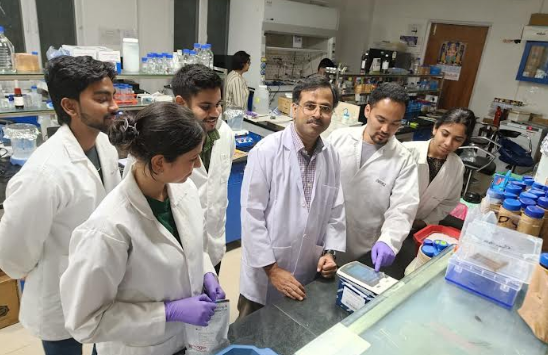Researchers at IIT Mandi propose protein-based vaccine against pork tapeworm
September 28, 2023 | Thursday | News
Combining protein studies and bioinformatics to identify safe and effective protein fragments for the vaccine
Indian Institute of Technology (IIT) Mandi researchers have made significant strides in the development of vaccines against the pork tapeworm (T. solium).
This tapeworm is responsible for both intestinal infections and the more severe brain infection that leads to seizures. The research, conducted in collaboration with scientists from Dayanand Medical College and Hospital in Punjab and the CSIR-Institute for Himalayan Bioresource Technology in Himachal Pradesh, presents a novel, faster, and more effective approach to producing vaccines for challenging infectious diseases.
WHO's "2030 Roadmap of Priority Neglected Tropical Diseases" aims to combat T. solium and similar infections affecting 1.5 billion people globally.
Traditionally, tapeworm vaccines have been developed using products or antigens derived from tapeworm eggs or larvae. However, these methods are not always reliable and can be time-consuming.
Injecting the entire tapeworm or parts of the tape worm to kick start the body’s immune system is not a safe or practical approach. A better and safer method is to inject only specific protein fragments from the tapeworm into the human. This approach minimises side effects and prevents the tapeworm from developing resistance to the vaccine.
The identification of the right protein fragment with strong vaccination potential is a painstaking and time-consuming process. A more innovative and efficient approach is needed to expedite progress in tapeworm vaccine development and the IIT Mandi researchers used a combination of protein studies and bio-informatics to develop a method of selection.
The amalgamation of protein studies with bioinformatics is a groundbreaking approach for identifying potential protein-based vaccines in a cost-effective and timely manner. This concentrated effort may provide a new tool for healthcare workers to combat neurocysticercosis and could serve as a model for addressing other neglected tropical diseases.









